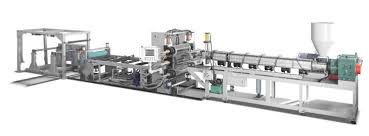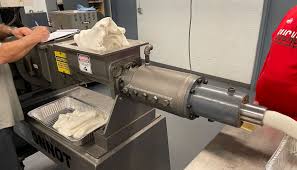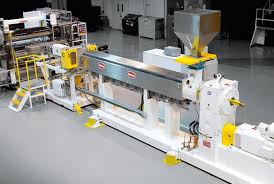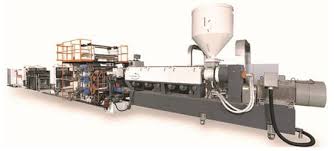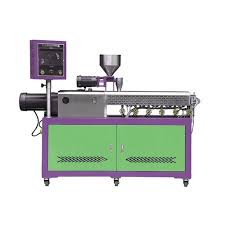In today’s plastics industry, recycling is no longer optional—it’s a business imperative. A PP plastic granulator is a powerful tool for converting polypropylene (PP) waste into reusable granules or pellets. Whether you're in manufacturing, packaging, or plastic recycling, a dedicated granulator helps reduce costs, improve sustainability, and support a circular economy.
What Is a PP Plastic Granulator?
A PP plastic granulator is a machine designed to shred, crush, and granulate polypropylene (PP) plastic into small, uniform pellets. These pellets can then be reused in various plastic production processes, such as injection molding, film blowing, or extrusion.
Granulators are commonly used to process:
Post-industrial PP scraps (e.g., runners, rejects, trimmings)
Post-consumer products (e.g., PP bottles, containers, caps)
Woven bags and non-woven fabric scraps
PP pipes or sheets
Why Choose a PP Granulator?
Polypropylene is one of the most widely used plastics, known for its durability, chemical resistance, and lightweight properties. However, PP waste can pile up quickly without an efficient way to recycle it.
Here’s why investing in a PP plastic granulator makes sense:
Cost Savings
Regrinding and reusing in-house waste reduces raw material costs and minimizes reliance on virgin resin.Waste Reduction
Granulators help reduce landfill waste by turning scraps into usable material, ideal for companies with sustainability goals.High Output Efficiency
Industrial granulators can process hundreds of kilograms per hour, supporting high-volume production environments.Consistent Granule Size
Screen-based systems ensure uniform output sizes, critical for feeding extrusion or molding machines.Versatile Applications
Granulated PP can be reused across various sectors, including automotive parts, packaging, construction materials, and household goods.
Key Features to Look For
When selecting a PP plastic granulator, consider these essential features:
Rotor Design: Open or staggered rotors offer better cutting and cooling, especially for soft or bulky PP waste.
Cutting Blades: High-speed steel or hardened alloy blades provide longer life and cleaner cuts.
Screen Size: Determines granule size—common mesh sizes range from 6 mm to 12 mm.
Cooling System: Air or water-cooled systems help prevent overheating, especially for thin films or non-woven materials.
Feeding Options: Manual or conveyor feeding depending on automation level.
Sound Insulation: For quieter operation in factory environments.
Integration with Recycling Lines
A PP plastic granulator is often the first stage in a complete recycling line. After granulation, the PP flakes can be:
Washed and dried
Melted and extruded into pellets using a plastic pelletizing extruder
Filtered to remove impurities
Packaged for resale or in-house reuse
Final Thoughts
A PP plastic granulator is more than just a cutting machine—it’s an essential component in sustainable plastic manufacturing and recycling. Whether you're looking to reduce waste, lower material costs, or meet environmental targets, a quality granulator ensures efficient reprocessing of polypropylene materials.


